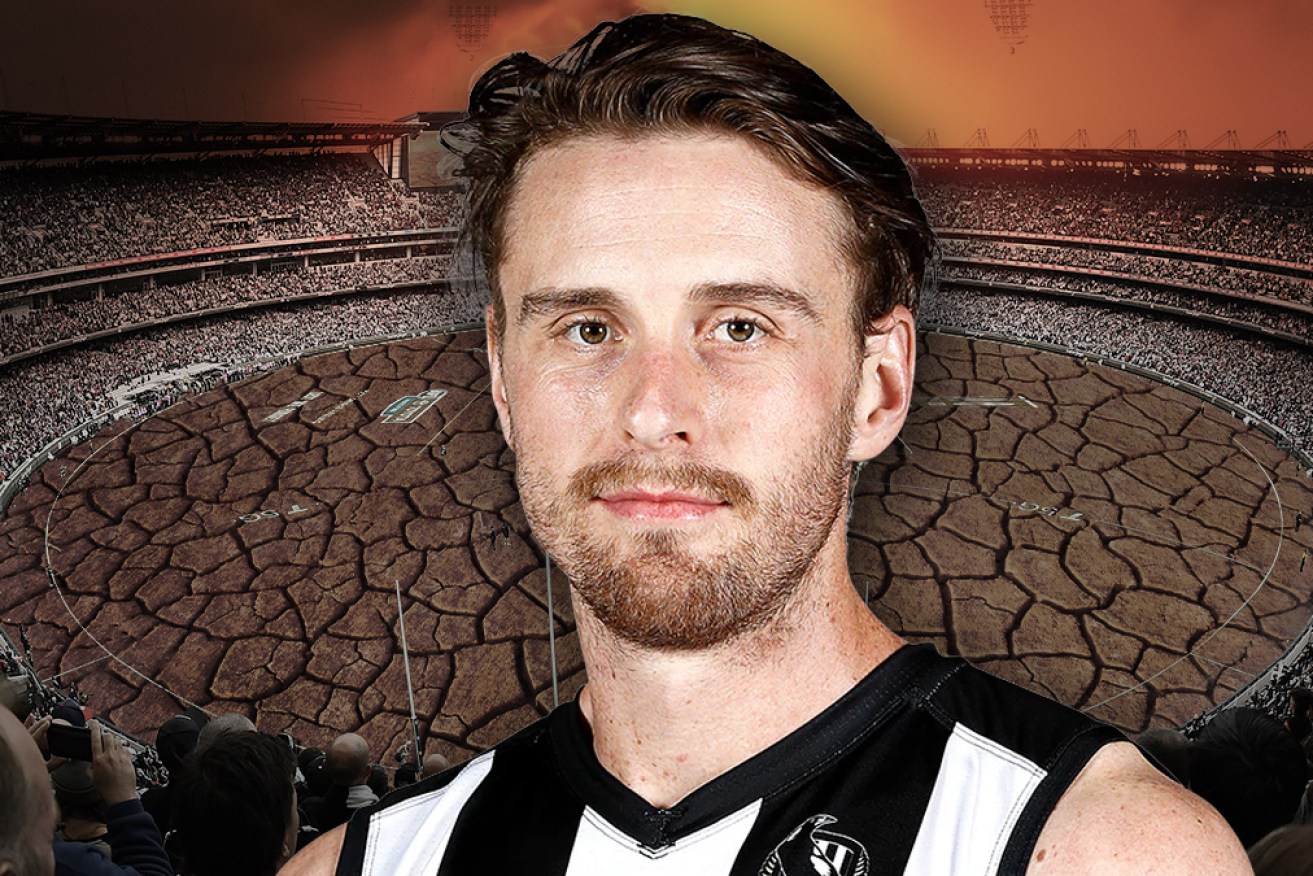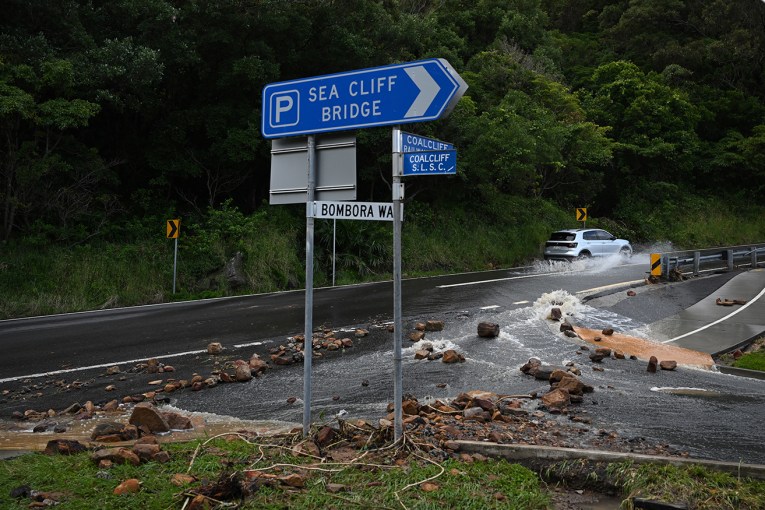Field of dreams casts light on the need for urgent action by all of us


AFL player Jordan Roughead says athletes, fans and clubs hold power in the fight against climate change. Photo: Collingwood/TND
There’s something a bit magical about a night game at the MCG.
The crisp winter air, the smell of freshly cut grass, the bright lights and the bringing together of a mass of people, all there for a shared purpose.
I’ve been lucky enough to live out this experience many times over during my career. But once, in my pre-game warm up, I found myself looking up at the light towers, considering the enormous amount of energy that would be needed to operate the incredible machine that is the MCG.
It’s a thought I’d come back to in years to come.
For most people involved in climate action, there are moments that lead to a behavioural or philosophical change.
For me, one came on the Great Barrier Reef. I snorkelled there when I was young, in awe of the colour of the coral and the abundance of ocean life.
Fifteen years later, my girlfriend and I returned to the reef. I was shocked by what I saw.
A mix of grey, yellow and white coral and, to me, a noticeable decrease of large fish.

The corals in the Great Barrier Reef have changed for the worse in little more than a decade. Photo: Kyodo via AP
It was real evidence of environmental change due to the impact of humans. But my now-wife, having never seen the reef before, knew no different.
It saddened me to realise she would never experience the phenomenon of nature that I had years before.
If we’re lucky enough to one day have children, I hate to think what might be left of the natural world for them to experience.
The other significant moment for me occurred at university.
A unit about corporate social responsibility explored the impact of agriculture and the beef industry on the deforestation of the Amazon rainforest.
Learning about this deforestation and the emissions related to the beef industry changed my eating habits, dramatically decreasing the amount of meat I consume.
I started listening to people who have dedicated their lives to understanding the cause of climate change, what the world will look like if we fail to take reasonable action, and developing solutions to the climate issues faced by humanity.
Sport is recognised as a vehicle for change.
Australia’s elite athletes are often idolised and seen as role models, which is why our opinions are deemed valuable and why we utilise our platforms to support important social causes.
There might be public grievances about the politicisation of sport and its athletes, but surely we can retire the rhetoric that footballers should just play the game and keep their mouths shut.
I’m also just a regular, 30-year-old guy who gives a shit about the world we live in.

AFL player Jordan Roughead, pictured with wife Bridget, worries his future children won’t get to experience wonders like the Great Barrier Reef. Photo: Elsa Campbell Photography
Within the AFL and AFLW community there is a movement brewing in support of climate action.
Understanding the environmental impact we have as individuals and as an industry is becoming important, in part because of the increasing effect of extreme weather on training and competition.
The Climate Council recently published a report detailing the threat that climate change is posing to the future of Australia’s summer of sport.
Through the 2019-20 summer, smoke haze across Melbourne cast a literal cloud over the Australian Open, the summer of cricket and AFL men’s and women’s preseason training.

W-League fixtures were among the many sporting cancellations caused by extreme rainfall and flooding on the east coast in the past season. Photo: AAP
More recently, the extreme rainfall and resulting flooding along the east coast resulted in the cancellation of W-League and A-League fixtures.
Of course, the impacts on sport are nothing compared with the devastation experienced in those affected communities, but as the climate continues to change and the frequency of extreme weather events increases, the sports we love will continue to be threatened.
There are two things that stand out to me particularly, about playing sport for a living: Having a clearly defined role which, when performed well, helps my team succeed, and working with a group of individuals who are committed to achieving a shared goal.
In the context of climate action, it may be cliché, but we all are on the same team. We all have a role to play. Importantly, sport and its governing bodies also have a role to play in helping us succeed.
On Tuesday, University of New South Wales and the Australian Conservation Foundation have released a report providing an example of what a climate solution looks like.
The research shows how jobs and the economy – as well as the climate – would benefit from Australian sports being powered by 100 per cent renewable energy by 2030, and details the positive impact that the installation of clean solar energy at community and elite sports facilities can have.
The power for change is in the hands of sportspeople and fans – and both community and elite levels.
Maybe it’s solar panels on every stadium roof, like those recently installed at the MCG, reducing single-use plastics at grounds, or even working towards an industry-wide carbon-neutral operation.
It would be amazing to look up at the light towers of any sporting field in Australia and know the power they use is clean.
That way we can all hold our heads high and know we did everything reasonably possible to hand the next generation a healthy future.
Jordan Roughead is an AFL player, who currently plays for the Collingwood Football Club and works as a coach for the AFLW Collingwood team








